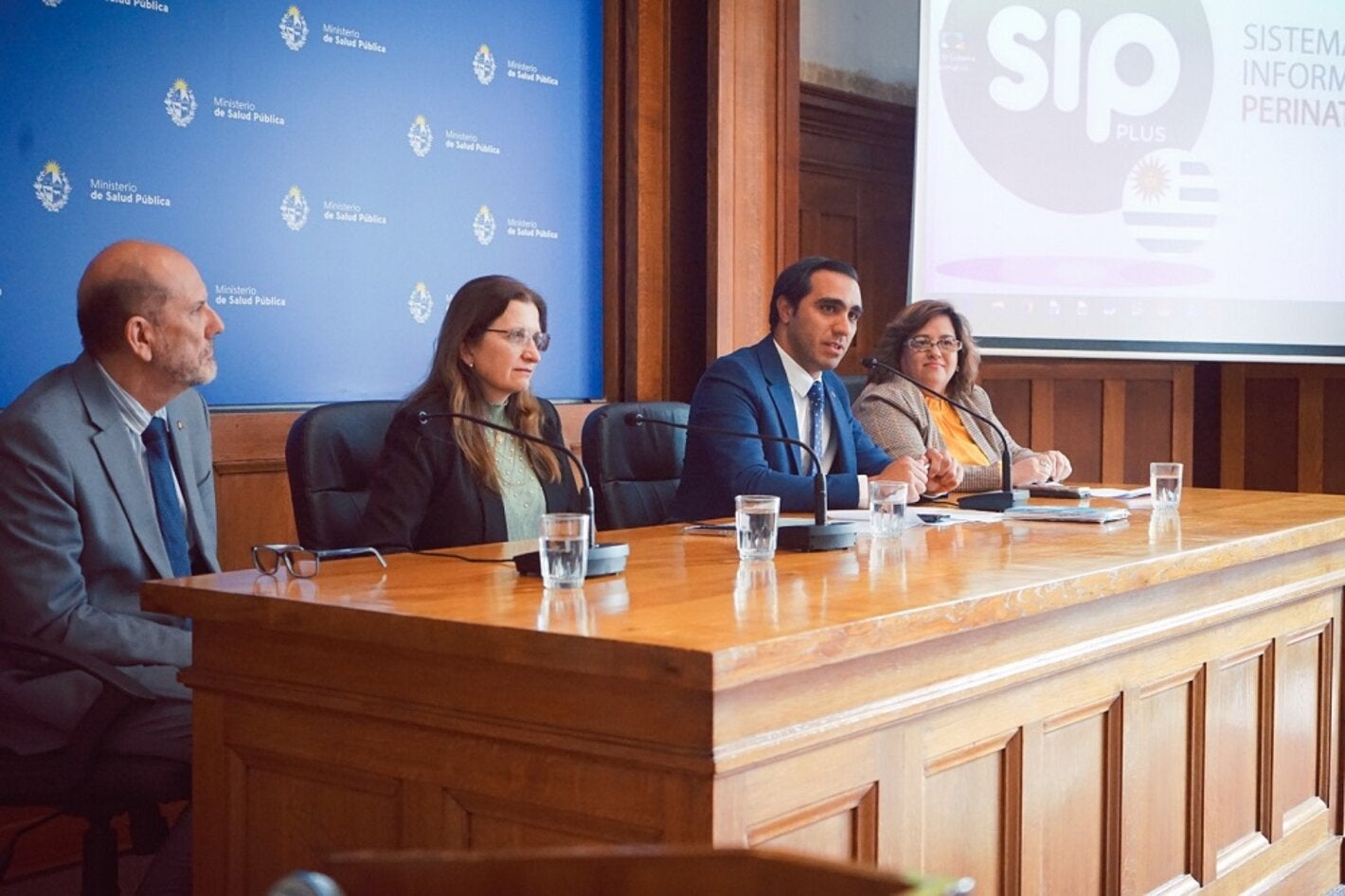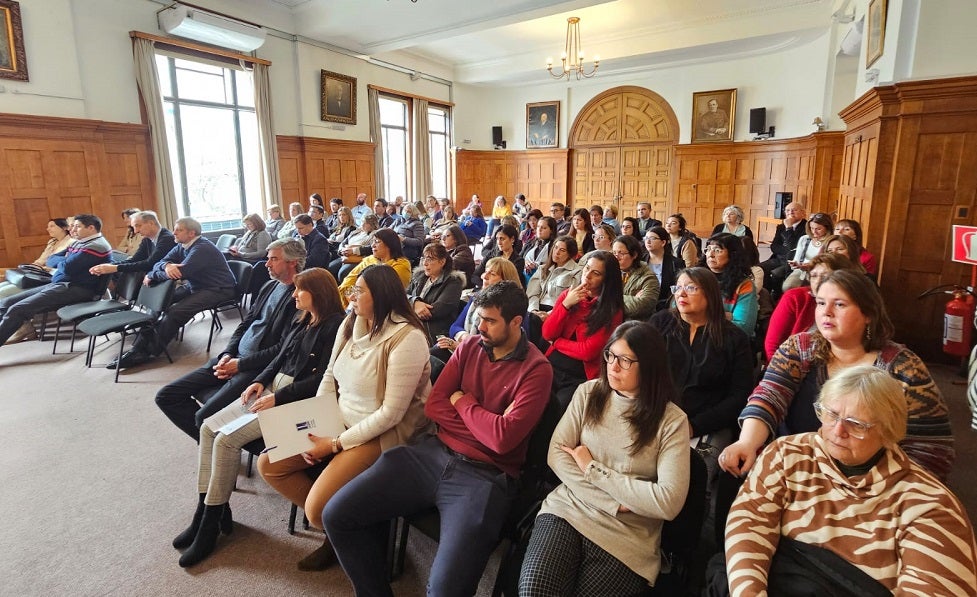
Montevideo, 15 September 2023. The SIP Plus is the web version of the Perinatal Informatics System (SIP), a Pan American Health Organization (PAHO/WHO) standard for the clinical registration of care in health services for women, pregnancy, childbirth and newborns.
On 13 September, a meeting was held to launch the SIP Plus version in Uruguay. The announcement was made by the Minister of Public Health, Dr. Karina Rando, who referred to the signing of a ministerial resolution by which, as of 1 January 2024, the use of SIP Plus will be mandatory for public and private providers throughout the country.
Although Uruguay has been using the SIP in different versions for four decades, the mandatory use of the web version implies, according to the minister, a "leap in quality". Among the benefits of this tool, she highlighted the possibility of having updated data in real time. "Having information is essential for decision-making and the formulation of evidence-based public policies," she said.
Rando referred to the steady decline in maternal deaths and neonatal deaths in the country. "This is due to the development of effective policies. Uruguay has been a pioneer in the implementation of measures to reduce maternal and infant mortality, a pioneer in the use of SIP, and now we are going to go a step further with the use of SIP Plus".
In addition, the minister highlighted the role and support of PAHO's Latin American Centre for Perinatology - Women's and Reproductive Health (CLP/WR), which was created by Uruguayan Roberto Caldeyro Barcia in 1970, and which is responsible for the development, maintenance and support of the SIP.
The system was presented by Luis Mainero of CLP/WR. Mainero said that, although in Uruguay the tool is mainly known for the perinatal clinical history, this system incorporates other histories or modules that can be very useful and that have been adapted over time to reflect the different epidemiological realities. He also highlighted the system's capacity for analysis. "With one click you can access indicator reports that are already standardised. You can also obtain descriptive analyses and generate filters according to the variables you want to consider".
In summary, Mainero said that SIP Plus has more than 30 clinical histories, 3,200 variables and 2,500 indicators. "This is something that is updated and adapted to the realities of the countries, so it is dynamic and constantly evolving".
He also stressed that SIP Plus is free, open source and supported by CLP/WR.
PAHO's regional advisor on Maternal Health, Bremen De Mucio, referred to a particular module of the SIP Plus, which is Near Miss Maternal (also known as extreme maternal morbidity). This concept refers to extremely severe cases, in which all conditions indicate that the woman is going to die, but she survives. "Having information that allows us to analyse these cases, to see what happened, to take particular lessons learned is fundamental to reduce maternal mortality. In countries like Uruguay, where the maternal mortality ratio is not as high as in others in the region, this analysis is crucial to understand and prevent the causes of death," said the advisor.
De Mucio also referred to the commitments made by countries to reduce maternal mortality in the framework of the Sustainable Development Goals (SDGs). "Even before the COVID 19 pandemic it was clear that these commitments were not going to be fulfilled and after the pandemic we have been left with an even more worrying scenario. This is an issue that has to be a priority for the region and that is why we welcome the progress that Uruguay is making with the incorporation of the SIP Plus. But the most important thing is that the tool is used thinking about the benefits and the positive impact it can have on women's health.
Marinés Figueroa, from the Department of Vital Statistics of the MSP and in charge of the SIP in Uruguay, referred to the history of the SIP in the country and emphasised the importance of having instances for the training of health personnel in order to maximise the benefits offered by the system. In this regard, she said that both virtual and face-to-face training will be carried out and shared the email sipplus@msp.gub.uy, which will be a communication channel to address queries that arise during this process.
In the same vein, Adriana Alfonso, Director General of Health, said that the MSP will provide the necessary support and conveyed that "SIP Plus has many potentialities, but we also know that there is a time of adaptation that is necessary to go through".
Finally, the undersecretary of Public Health, José Luis Satdjian, said that this is part of a process of continuous improvement and that it is essential that technology is used in favour of health objectives since "what cannot be measured cannot be improved". He also said that the SIP Plus will be a very important tool for another project that the MOH has with the United Nations Population Fund (UNFPA), which will allow it to better address the needs of women in vulnerable situations.
More on the SIP Plus at https://www.sipplus.org/
Access the SIP Podcast, with information about the system and testimonies reflecting different uses for care, management and research.




